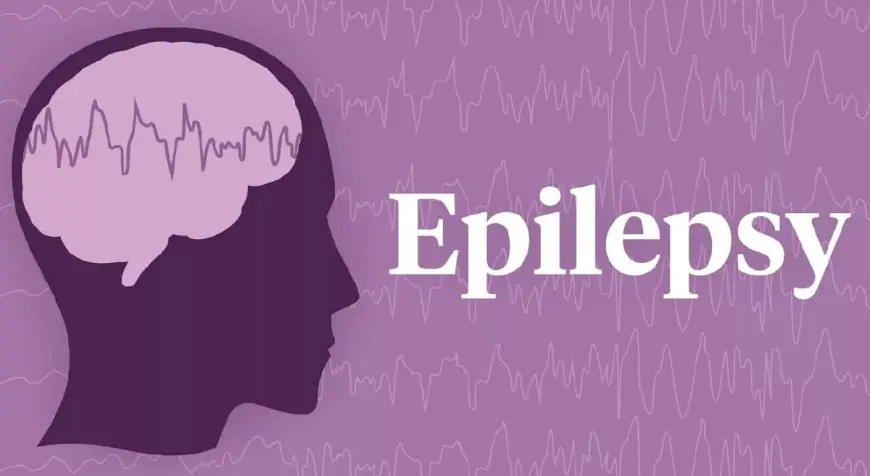Dr. Veeranna Gadad Shares Expert Insights on Managing Epilepsy
Epilepsy is a neurological disorder causing sudden seizures due to electrical disturbances in the brain. It affects all age groups but is manageable with proper medication and care. Common causes include brain infections, tumors, and low sodium levels. Timely treatment prevents complications. Senior neurologist Dr. Veeranna Gadad, shares insights on epilepsy care. On International Epilepsy Day (Feb 10), let's raise awareness and break the stigma!
| Google News | Join WhatsApp | Join Telegram | Live |

Daily Mail 24 News Desk.
By Dr. Veeranna Gadad
Epilepsy, commonly known as seizures or fits, is a neurological disorder that can affect people of all ages, from infants to the elderly. It occurs due to sudden electrical disturbances in the brain, leading to episodes of uncontrolled movements, unconsciousness, or altered awareness.
Despite being a manageable condition, epilepsy is often misunderstood, leading to fear and stigma. On the occasion of International Epilepsy Day (February 10), it is essential to raise awareness about the causes, symptoms, treatment options, and the importance of timely medical intervention. With proper care, medication, and lifestyle adjustments, individuals with epilepsy can lead healthy, fulfilling lives.
What is Epilepsy?
Epilepsy, also known as seizures or fits, is a neurological disorder caused by sudden electrical disturbances in the brain. It is a rare condition that affects brain function.
Who Can Get Epilepsy?
Epilepsy has no age restrictions. It can affect anyone, from infants to senior citizens.
Causes of Epilepsy
There are multiple causes of epilepsy, including:
- Brain infections such as meningitis
- Brain hemorrhage (bleeding in the brain)
- Anemia in the brain
- Brain tumors
- High blood pressure
- Other neurological conditions
In some children, epilepsy may occur due to a sudden high fever, a condition known as febrile seizures. Apart from brain disorders, other health issues can also trigger seizures, such as:
- Low sodium levels in the blood
- Excessive alcohol consumption
- Drug intoxication
- Sudden withdrawal from alcohol after regular consumption
Epilepsy is commonly seen in individuals with intellectual disabilities. Pregnant women and new mothers may also develop epilepsy due to various factors.
What to Do When Someone Has a Seizure?
If you witness someone having a seizure:
- Turn them onto their side to prevent choking.
- Ensure they have enough space and remove any nearby objects that could cause injury.
- Do not place any object or cloth in their mouth.
- Do not restrain them or try to stop their movements.
Seizures typically subside within a few minutes. Afterward, take the person to a nearby healthcare center or specialist for further evaluation. If seizures persist for a long time, immediate medical attention at a neurology center is necessary. This condition is known as Status Epilepticus.
How Do Doctors Treat Epilepsy?
At the hospital, doctors administer appropriate medication to stop seizures. They also perform diagnostic tests such as:
- Blood tests
- Brain scans
- EEG (Electroencephalogram)
These tests help identify the underlying cause of epilepsy.
Why Should Epilepsy Be Treated?
If left untreated, epilepsy can become recurrent and pose severe risks, including:
- Road accidents due to unexpected seizures
- Cognitive impairment in children
- Miscarriage in pregnant women if seizures are uncontrolled
Is Epilepsy Contagious?
No, epilepsy is not a contagious disease. However, in some cases, it may have a genetic component.
Is There a Cure for Epilepsy?
Yes, epilepsy is treatable. Initially, medications are prescribed, and depending on the severity, they may need to be taken for one to five years. In some cases, lifelong medication may be required. If medication fails to control seizures, advanced tests are conducted, and surgery may be recommended.
Can a Person with Epilepsy Get Married?
Absolutely! With proper treatment and medication, epilepsy can be well-controlled, allowing individuals to lead a happy married life. Seeking the right medical guidance ensures a fulfilling and stable life.
Does SS Narayana Super Specialty Hospital Provide Epilepsy Treatment?
Yes, SS Narayana Super Specialty Hospital is equipped with advanced technology, expert neurologists, and state-of-the-art diagnostic facilities for epilepsy. We have successfully treated thousands of epilepsy patients.

Author:
Dr. Veeranna Gadad
Senior Professor & Neurologist,
SS Narayana Super Specialty Hospital, Davangere
| Google News | Join Facebook | Live | 24/7 Help Desk |




























